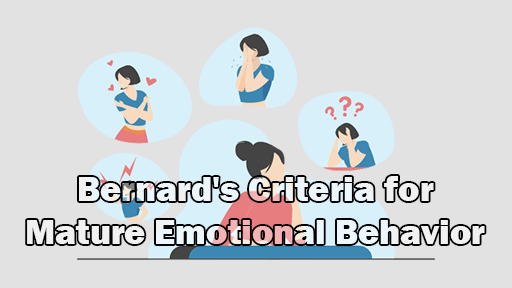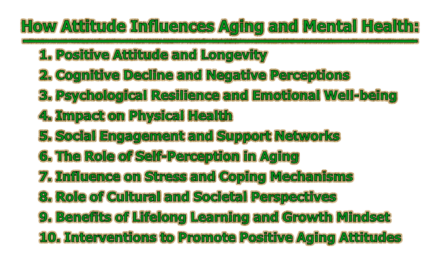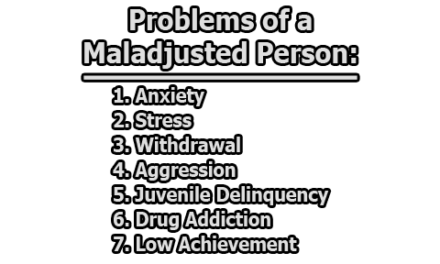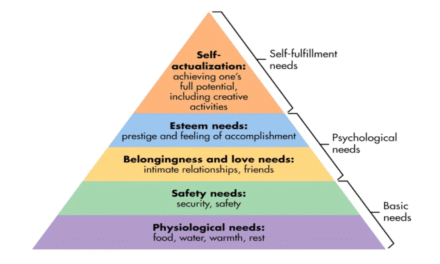Bernard’s Criteria for Mature Emotional Behavior:
Emotional maturity is a crucial aspect of personal development that plays a pivotal role in one’s overall well-being and interpersonal relationships. In 1959, Bernard presented a comprehensive set of criteria outlining the characteristics of mature emotional behavior. These criteria not only shed light on the qualities associated with emotional maturity but also serve as a guide for individuals seeking personal growth and self-awareness. Here are the Bernard’s criteria for mature emotional behavior:
1. Inhibition of Direct Expression of Negative Emotions: Bernard’s first criterion underscores the significance of exercising control over the direct expression of negative emotions. This doesn’t imply suppressing or denying these emotions but rather engaging in a thoughtful and measured response. Emotionally mature individuals have developed the ability to regulate their emotional reactions, choosing to express negativity in a constructive manner or opting for a more positive outlet. This skill promotes healthier communication, minimizes conflict, and allows for the development of empathetic understanding in various interpersonal relationships.
2. Cultivation of Positive, Upbuilding Emotions: The second criterion emphasizes the intentional cultivation of positive and upbuilding emotions. Emotionally mature individuals actively work towards fostering a positive mindset, recognizing the impact it can have on their overall well-being and those around them. This involves engaging in activities that bring joy, practicing gratitude, and developing a positive outlook on life. By consciously cultivating positive emotions, individuals contribute to creating a more optimistic and supportive social environment, enhancing both personal and collective emotional resilience.
3. Development of Higher Tolerance for Disagreeable Circumstances: Emotional maturity, according to Bernard, involves the development of a higher tolerance for disagreeable circumstances. This implies a capacity to navigate challenges and setbacks without succumbing to overwhelming negativity. Mature individuals exhibit resilience and adaptability, viewing adverse situations as opportunities for growth rather than insurmountable obstacles. This criterion encourages the development of coping mechanisms, stress management skills, and a mindset that views challenges as valuable learning experiences.
4. Increasing Satisfaction from Socially Approved Responses: Bernard’s fourth criterion highlights the importance of deriving satisfaction from socially approved responses. This does not imply conforming blindly to societal expectations but rather aligning one’s actions with shared values and ethical norms. Emotionally mature individuals find fulfillment in contributing positively to their communities, fostering harmonious relationships, and promoting social cohesion. This criterion emphasizes the role of social awareness and responsibility in achieving a sense of personal satisfaction through actions that benefit both oneself and the wider society.
5. Freedom from Unreasonable Fears: The fifth criterion of emotional maturity involves achieving freedom from unreasonable fears. Emotionally mature individuals exhibit a realistic perspective on potential threats and uncertainties, distinguishing between rational concerns and irrational fears. This capacity for discernment allows them to approach challenges with a calm and rational mindset, making informed decisions based on a clear understanding of the situation. This criterion encourages the development of emotional resilience, as individuals learn to manage anxieties in a healthy and constructive manner, contributing to a more stable and well-balanced emotional state.
6. Understanding in Accordance with Limitations: Bernard’s sixth criterion focuses on the importance of understanding one’s limitations. Emotionally mature individuals possess a heightened self-awareness that enables them to recognize and accept their own strengths and weaknesses. This understanding fosters humility, as individuals acknowledge that they are not infallible and can benefit from continuous learning and personal growth. By aligning actions with a realistic assessment of one’s capabilities, emotionally mature individuals contribute to a more authentic and grounded approach to life, promoting genuine connections with others.
7. Increasing Dependence of Action: The seventh criterion highlights the significance of an increasing dependence on thoughtful and deliberate actions. Emotionally mature individuals exhibit a capacity for considered decision-making rather than succumbing to impulsive reactions. This criterion encourages a measured and intentional approach to problem-solving and goal attainment. By relying on thoughtful actions, individuals contribute to the creation of a more stable and predictable environment, fostering trust and reliability in both personal and professional relationships.
8. Awareness of Ability and Achievement of Others: The eighth criterion centers around the awareness of the abilities and achievements of others. Emotionally mature individuals not only recognize their own accomplishments but also appreciate and celebrate the successes of those around them. This criterion encourages a supportive and collaborative mindset, contributing to positive social dynamics and fostering a sense of community. By acknowledging the achievements of others, emotionally mature individuals contribute to a positive and inclusive social atmosphere.
9. Ability to Err Without Feeling Disgraced: According to Bernard, emotional maturity involves the ability to err without feeling disgraced. This criterion emphasizes resilience in the face of mistakes, recognizing that errors are inherent to the human experience. Emotionally mature individuals view failures as opportunities for growth and learning rather than sources of shame. This attitude promotes a healthy self-image and encourages a proactive approach to overcoming challenges, ultimately contributing to ongoing personal development.
10. Ability to Carry Victory and Prestige with Grace: The tenth criterion underscores the importance of carrying victory and prestige with grace. Emotionally mature individuals remain humble and gracious in moments of success, avoiding arrogance or a sense of entitlement. This criterion promotes a balanced and modest approach to achievements, contributing to positive and genuine relationships. By handling success with grace, emotionally mature individuals inspire trust and admiration, fostering a supportive social environment where accomplishments are celebrated without diminishing the contributions of others.
11. Ability to Delay the Gratification of Impulses: Emotional maturity, as described by Bernard, includes the ability to delay the gratification of impulses. This criterion highlights the importance of self-discipline and the capacity to resist immediate rewards for the sake of long-term goals. Emotionally mature individuals exhibit patience and foresight, recognizing that delayed gratification often leads to more significant and sustainable achievements. This characteristic is crucial for personal and professional success, as it contributes to the development of perseverance and a strategic mindset.
12. The Enjoyment of Day-to-Day Living: The twelfth and final criterion focuses on the enjoyment of day-to-day living. Emotionally mature individuals appreciate the present moment, finding fulfillment in life’s simple pleasures. This criterion encourages a positive outlook, as individuals savor the experiences and joys of everyday life. By cultivating a mindset that values the present, emotionally mature individuals contribute to overall well-being and resilience, fostering a content and grateful attitude towards the richness of daily existence.
In conclusion, Bernard’s criteria for mature emotional behavior provide a comprehensive framework for understanding and cultivating emotional maturity. By embracing these characteristics, individuals can embark on a journey of personal growth, fostering healthier relationships and a more fulfilling life. The integration of these criteria into daily life can contribute to a more emotionally resilient and well-adjusted society.

Library Lecturer at Nurul Amin Degree College










